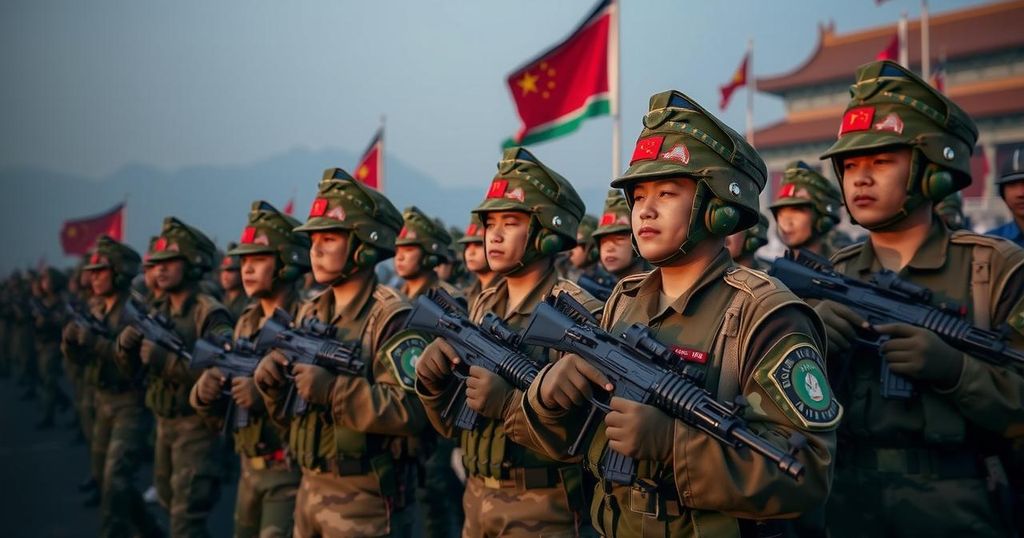India and China Begin Troop Disengagement Amid Ongoing Border Negotiations
Indian and Chinese troops are currently engaged in a disengagement process in the Depsang Plains and Demchok regions, confirmed by both sides. This development follows an agreement on restoring patrolling rights previously obstructed by Chinese actions. External Affairs Minister S. Jaishankar has praised the Indian military’s role while acknowledging the complexities of the situation. The process is expected to conclude by October 28-29, 2024, although normalization of relations will require time and trust-building efforts.
On October 27, 2024, the Indian Army confirmed the initiation of troop disengagement in the Depsang Plains and Demchok regions, a process that was also acknowledged by Chinese officials. “Chinese and Indian frontier troops are engaged in relevant work, which is going smoothly at the moment,” stated Lin Jian, spokesperson for the Chinese Foreign Ministry, during a media briefing in Beijing. This announcement follows India’s earlier agreement to restore patrolling rights in these contentious areas, which had been a topic of negotiation for the past two years after significant border disturbances began in 2020. External Affairs Minister S. Jaishankar highlighted the vital role of the Indian military in managing the sensitive border situation under challenging conditions and recognized both military efforts and diplomatic initiatives in achieving the recent developments. He emphasized the need for gradual normalization of relations, given the prolonged tensions and complex factors involving troop disengagement, de-escalation, and border management negotiations. Jaishankar expressed optimism regarding the agreements reached but noted that trust and collaboration between the two nations would take time to rebuild. Currently, the disengagement process is concentrated on the Depsang and Demchok areas, marking a significant step toward resolving border tensions. Temporary military structures established during the standoff are being dismantled, as both nations work towards restoring prior patrolling rights. The significance of this disengagement is underscored by the previous reluctance of Chinese authorities to engage in discussions regarding these specific locations. The successful implementation of this agreement remains contingent on various factors, including terrain and weather conditions, with anticipated completion by October 28-29, 2024. However, the scope of the current negotiations and agreements is limited to these two friction points, which are part of a broader historical context that predates the most recent incursions.
The ongoing military standoff between India and China along the Line of Actual Control (LAC) has been a matter of significant geopolitical concern since 2020, following multiple incursions by Chinese forces into disputed territories. This standoff has led to heightened tensions, resulting in both nations reinforcing their military presence along the border. The recent disengagement process is a response to ongoing negotiations aimed at restoring stability and normalizing bilateral relations, particularly focusing on challenging areas where both countries have clashed in the past. The commitment to disengagement reflects both nations’ dedication to addressing underlying issues while navigating the complexities of their historical and territorial disputes.
In conclusion, the recent confirmations by both Indian and Chinese authorities regarding troop disengagement in the Depsang Plains and Demchok represent a crucial step towards mitigating border tensions and restoring longstanding patrolling rights. While External Affairs Minister S. Jaishankar acknowledged the achievement as a significant milestone, he also emphasized the gradual nature of the normalization process that lies ahead. The current agreement is limited to these two locations, highlighting the necessity for continued dialogue and cooperation to address broader issues relating to border management and future negotiations between India and China.
Original Source: indianexpress.com








Post Comment